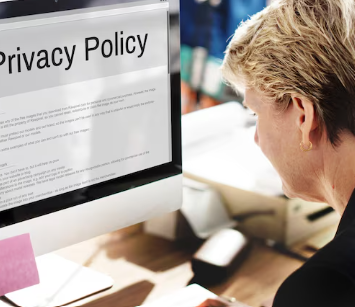Last Friday, April 3rd, the Paycheck Protection Program (PPP), a $349 billion loan program created under the CARES Act and administered by the U.S. Small Business Administration, launched. Under the program, participating banks and financial institutions are tasked with taking and evaluating applications from applicants and providing loans to approved entities. Considering the fact that a program designed to award billions of dollars in forgivable loans went from creation to launch in a week, it’s no surprise that its launch on Friday was rocky. While banks are struggling to process PPP loans fast enough, Congress has already announced its intention to increase the program by at least an additional $250 billion due to overwhelming demand.
What Is Happening on the Ground
A day before the launch of the PPP, the SBA released its Interim Final Rule implementing the PPP. The Rule made it clear that the program will be administered on a first-come first-serve basis, and therefore, the race to the allocation of the loan money was truly on. The news media reported, and we have heard similar stories from clients, that businesses were having great difficulty in submitting applications and many banks were not prepared. In recent days, some of the issues have been resolved, but the sheer volume of applicants makes timely processing almost impossible.
Clarifications by the Treasury Department Regarding the Affiliation Rule
Last week, on the eve the PPP launched, the Treasury Department released the final rule on affiliations, an issue that is of extreme importance to many venture-backed startups who were seeking clarification on the matter. Under the affiliation rule, the count of the number of employees includes both the applicant and its affiliates. Generally, if the company and its affiliates, combined, have more than 500 employees, the company will not be eligible for the PPP.
In releasing its final rule on affiliations, the Treasury Department reiterated that the test for affiliation based on ownership remains in effect for purposes of the PPP. The affiliation rule based on ownership states:
Affiliation based on ownership. For determining affiliation based on equity ownership, a concern is an affiliate of an individual, concern, or entity that owns or has the power to control more than 50 percent of the concern’s voting equity. If no individual, concern, or entity is found to control, SBA will deem the Board of Directors or President or Chief Executive Officer (CEO) (or other officers, managing members, or partners who control the management of the concern) to be in control of the concern. SBA will deem a minority shareholder to be in control, if that individual or entity has the ability, under the concern’s charter, by-laws, or shareholder’s agreement, to prevent a quorum or otherwise block action by the board of directors or shareholders.
Venture-backed startups hoping for a waiver or exception to the affiliation rule for minority investors were left disappointed.
This week, the SBA and the Treasury Department also released a list of Frequently Asked Questions, the responses to which serve as guidance which may be relied on. The document reiterated that “[b]orrowers must apply the affiliation rules set forth in SBA’s Interim Final Rule on Affiliation,” which also includes the affiliation based on ownership. However, the guidance also clarified that “[i]f a minority shareholder in a business irrevocably waives or relinquishes” its rights to prevent a quorum or otherwise block action by the board of directors or shareholders, then said minority shareholder will no longer be considered an affiliate of the business (assuming that no other relationship triggers the affiliation rules).
Based on that, startups could remove the affiliation rule barrier and be eligible for the PPP if their minority shareholders with such veto rights are willing to irrevocably waive or relinquish them.
What Are Startups Doing?
In enacting the CARES Act and creating the PPP, Congress intended to assist small businesses quickly in order to avoid their collapse and to enable them to retain their workforce. Unfortunately, the uncertainty over the affiliation rule based on ownership has slowed the process for many startups and has outright prevented many from applying for a program which could benefit them and their employees. In the meantime, armies of lawyers and advisors have begun poring over many startups’ corporate documents and cap tables to try and determine the applicability of the affiliation rules and eligibility to apply for the PPP.
The application form requires the authorized representative signing on behalf of the applicant to answer several questions and make certain certifications and representations. For example, the authorized representative must state whether the applicant or an owner of the applicant owns any other business or has common management with any other business. Additionally, the authorized representative must certify that the applicant is eligible to receive a loan under the PPP. Furthermore, the application requires the authorized representative to certify that “current economic uncertainty makes this loan request necessary to support the ongoing operations of the Applicant” – not such an obvious representation for startups that have recently closed a funding round.
Unsurprisingly, given the high stakes for many startups, the initial inclination for some was to quickly fill out the application and apply with their bank. However, most if not all startups, upon closer review of the application, understood the importance of reading and analyzing the application closely and giving real consideration to all of the application’s certification and representation requirements.
While the application process for startups may be lengthier and more complex due to the additional analysis and actions required to ensure eligibility, the hope is that many who need the assistance will still be able to apply.



